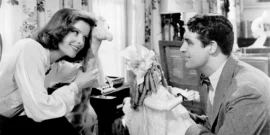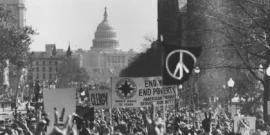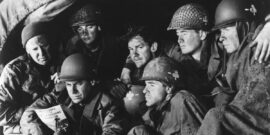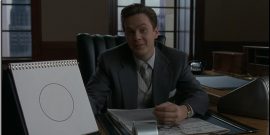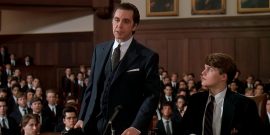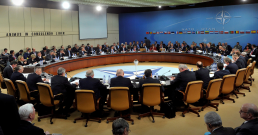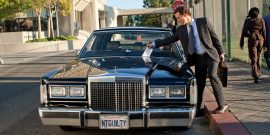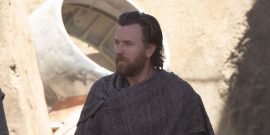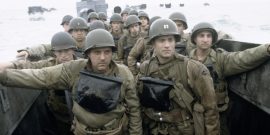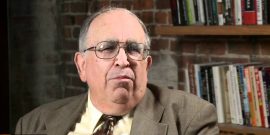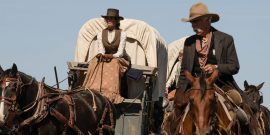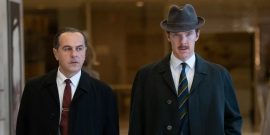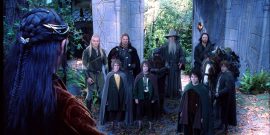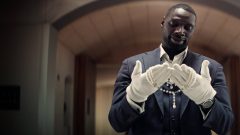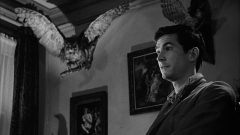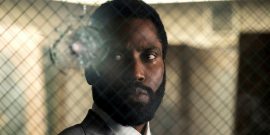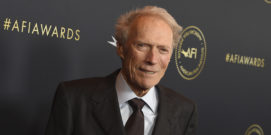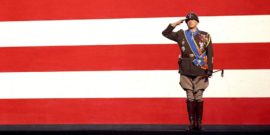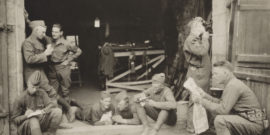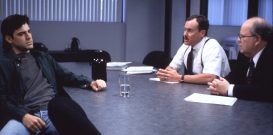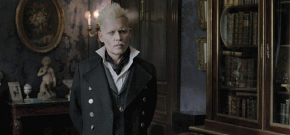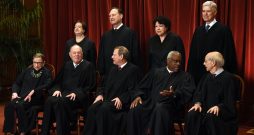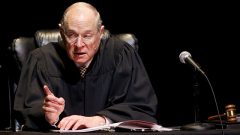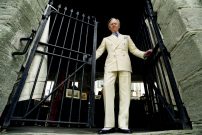The television series Manhunt reassures viewers of American triumph without wrestling with its great conflicts.
Titus Techera
Instead of a story about heroism, Dune: Part Two is a sociological picture of a liberal, progressive America.
A study of Electra and the demands of justice as portrayed in the plays of Aeschylus, Sophocles, and Euripides.
The 1938 film showed us what is admirable in young women and what inspires young men.
At a time when woke culture wars dominate the media, Lincoln Lawyer evokes an older liberalism.
The latest Star Wars television show celebrates victories in diversity and inclusion.
The quarterback must exhibit judgment, exhort his men to fight, and bring about a kind of unity that is unfamiliar in normal life.
Sometimes revolutionary thinkers are the creature of the moment, not the creator.
The market economy in TV series and popular culture valued freedom and the entrepreneur.
Wes Anderson’s surreal films offer depictions of American life that we cannot ordinarily stand to recognize.
Justified: City Primeval is a show about honor, profit, and justice among the rich and poor, black and white.
The latest installment of Mission: Impossible showcases perhaps Hollywood's last movie star, Tom Cruise, in all his romantic heroism.
In Indiana Jones 5: The Dial of Destiny, our hero's rugged manliness is reduced to misery, regret, and toxicity.
In No Country for Old Men, McCarthy wrestled with the question of evil and how the democratic person understands it.
A1949 movie about the Battle of the Bulge reveals the American character that won World War II.
A report of the National Conservatism Conference in London.
Is James Bond now part of today's culture of toxic masculinity?
John Wick is an image of rugged American individualism, from his Mustang and gun to his silent demeanor.
Spielberg's The Fabelmans is a confrontation between 1950s and 1960s America.
There is no better way to honor Dylan's writing than to listen to his stories and learn from them.
In Joseph Bottum's poetry, American patriotism is subsumed in ordinary life.
Paul Johnson's turn to history from journalism ought to earn him a lasting place in our memory as a great defender of ordered liberty.
The Cohen Brothers restored some hope in American life without ignoring the predicament that makes us turn to entertainment.
Metropolitan presents something we rarely see in movies: the funny and even admirable side of the graduates of America’s prep schools.
Blade Runner presented an influential and prophetic vision of the future.
Scent of a Woman presents the moral and manly education of Charlie Simms, who has been left fatherless by America.
The Rings of Power assumes that the audience's progressive virtues eliminate the need for a good story.
Tech entrepreneurs once had a kind of public spirit and a desire to solve people’s problems.
The achievements of the American empire have not inspired confidence in Progress.
Ken Burns's new documentary on Benjamin Franklin is neither memorable nor inspiring.
The Lincoln Lawyer shows that we really don’t know how to administer cities or how to deal with their politics in America.
Obi-Wan Kenobi is a combination of Progressive politics and pop psychology that makes for bad storytelling.
Christopher Nolan offered a defense of heroism and a prophetic warning about the terrors of egalitarianism in his Dark Knight trilogy.
How should we assess the democratic way of war on Memorial Day?
Ulysses S. Grant understood the immense difficulties of waging war as a democracy. And he excelled at it like no other.
Gran Torino's Walt Kowalski mourns for his country with anger and resentment until called upon to perform an act of Christian sacrifice.
Harry Callahan is the embodiment of an older America: gentle to the gentle, violent to the violent.
Bruce Willis played the most inspiring citizen-hero the movies produced in his lifetime.
The Hand of God asks us to reexamine our ideas about miracles in art, myth, and religion.
Paul Cantor was a unique combination of the popular and the high-minded, who was as much at home with Shakespeare as with Hollywood movies.
With 1883, Taylor Sheridan is giving America back what it loved about the Western.
In The Courier , two very different men become friends because they aim to save civilization and embody it.
Tolkien leads his readers to the thought that politics is education.
Two problems—war and kingship—should guide the viewer revisiting Peter Jackson's Lord of the Rings films twenty years later.
In the series' fourth season, the Duttons, great as they are, are not strong enough to defend themselves alone from America's legal and financial elites.
We mourn his loss most honestly when we face the fact that we have not given him the influence he deserved to have over taste.
Die Hard is our Christmastime Western, edifying children and adults alike about the need for the manly virtues.
It’s not an accident that America got one version of Dune in the 80s and another now. It reflects an enthusiasm that has since turned to despair.
Do tales of mankind’s cosmic destiny like Dune help us understand our future and ourselves?
Human nature is split between our properly human concerns and the cosmic situation in which we find ourselves, which is beyond our power to choose.
Asimov judges the present by an imagined future, acting on the belief that scientific procedures guarantee progress.
Sir Gawain cautions readers not to make too much of manliness, of fearlessness in face of death, since even perfect knights may secretly flinch.
Clint Eastwood is still at work giving us stories about civic virtue and examples of a necessary American stoicism.
Gawain cannot be at home with fantasies, but he must pass through them to reach the Green Knight and discover his fate.
Looking at Band of Brothers, pop culture’s best case for “The Greatest Generation,” 20 years on.
Those Who Wish Me Dead raises the question of natural justice, of man’s situation in the world.
A willingness to bear witness to this dramatized suffering is almost an act of piety—as free men and women, to be shown how our freedom is defended.
Black Hawk Down tells a story that honors American soldiers, but also has a clear warning about what has become the American way of waging war.
Greyhound offers an unusually deep look at a faithful captain struggling against the enemy to deliver his flock safely to port.
On how Zack Snyder's Justice League suggests we need ancient powers and new heroes if we are to succeed.
Lupin follows a wonderful, but amoral coup with a very moralistic but misguided, even silly, crusade.
Deutschland 89 reminds us that freedom is not for the faint of heart.
Rome and Caesar are unknown to modern elites who refuse to believe in the existence of great men.
We find some rest in Christmas, in the giving and receiving of gifts—because, as in fairy tales, the beautiful and the good are one.
Liberty is primarily a way of life—not theory. We will defend it, or cease being who we are.
What we can learn from Sir Sean Connery as elder statesman in film.
We laugh at images of evil and make them sexy, and Carpenter's Halloween shows us the error of our ways.
Hitchcock told dark stories of contemporary America because he saw dark things coming.
Faith in the Constitution is as revolutionary today as it was in 1787.
Tenet presents the ultimate lesson of tragedy: Desire defeated returns as revenge.
The world is not going back to the 20th century, but our liberals have never really moved past those halcyon days when they had run of the world.
Sheridan wants to teach by tragedy, so his protagonists are essentially honorable, which is no longer tolerated in our storytelling.
Today, it does not suffice tell people they have souls, they must come to believe it by certain experience—and Christopher Nolan offers this.
In 2020, a famous novelist offering a tale about love in the midst of disaster is a prophet of hope
Mr. Jones shows that a caricature of life, once enacted, turns deadly.
Eastwood has dedicated himself to the restoration of the dignity of patriotism through the portrayal of American heroes.
We cannot restore civil peace without a reasonable promise of happiness.
Although elite liberalism suddenly hates him very publicly, Allen had no idea the knives would come out for him.
Great men prove what we are capable of, but they also prove that institutions are not by themselves enough.
There is much to learn from Pippin, but there is more to learn from Aristotle—first of all, to take the plot seriously.
We need not grifters or hysterical celebrities, but people dedicated to public concerns who will defend our rights to our private lives.
In treating the military as an education rather than a job or a weapon, Beauchamp illuminates the restlessness of the American heart.
If we understand the woke madness and the deeper liberal madness driving it, we should be able to fight for America without becoming like the woke.
Who will mind the public business? Our elites will. After all, busybodying is their job and their job is all they ever do.
Nationalism itself encloses a secret hope of rebirth which would, properly thought through, go beyond politics.
The show is self-righteous about an entirely inverted reality—a Venezuela that is somehow the victim of nationalism in need of social justice.
Where many conservatives speak sentimentally of Western Civilization, Roger Scruton sought to know and justify it by the highest standards of philosophers.
It’s unlikely that Instagram can power up a new version of monarchy, but it can surely humiliate and thus destroy what’s left of it.
In Coppola’s telling, the American way of war tends toward either incompetence or brutality.
How dare free American citizens say something in favor of political freedom.
If we wish to understand what's happening to some of our elites, we had better turn instead to more durable sources of wisdom—poetry and film, above all.
It is up to the people of Britain to reassert their democratic right to elect their representatives and thus consent to government.
His comedy points out that liberalism, which once respected human equality and difference, now imposes rapidly changing woke dogma in its place.
Cantor explores the dangers of individualism: apathy and violence; the yearning for success at any cost; and the ongoing failure of confidence in America.
The only way America could produce a true populist, a home-grown demagogue that could rise to the top of national politics, would be through the media.
The promise of lawless freedom is partly deceptive; something beyond mere individualism is required to make a community.
Those of us who argue that what we conserve is freedom together with equality need to make an ally of Thiel.
Unless elites propose to elect another people, as Bertold Brecht joked, they'll just have to stop calling it “far right.”
The French need something more than policy speeches—they need to face their catastrophe with faith and thus rediscover powers that have long languished.
If we had writers as wise and daring as Aristophanes, someone would be telling us what's going on with us today.
Despite fascinating so many, The Matrix failed because it shares the modern aversion to tragedy, and leaves us with a flattened view of humanity.
Bosch's manliness and stoic sense of duty combine with the absence of faith to make him serve those who need him without hoping for a just order.
Remembering a film that foreshadowed the big labor-capital conflict over dignity that we also see nowadays rocking our politics, society, and economy.
Nobody stopped to think these films were not just comedy, but also stories about a coming class conflict in America.
There are limits to self-delusion for a free people, and Snyder's Watchmen ruthlessly probes them.
The second "Fantastic Beasts" movie takes us to that familiar J.K. Rowling realm, where moral conformism goes hand in hand with a desire for distinction.
The new Jack Ryan reflects how much has changed since the Cold War, and the result is an insightful mirror into American society.
The new wave of Netflix-Marvel shows offers viewers superficial moralism alongside a strong dose of American individualism.
Our science fiction is not open to the soul's longings as revealed through eroticism, community, and faith: turning to Walker Percy can help remedy this.
Justice Kennedy's retirement marks the end of an era, but are we prepared for what comes next?
We are about to learn that the First Amendment is the cornerstone of our civil peace by seeing it endangered: this is the real lesson of Masterpiece.
We often imagine technological tyranny and yet our famous dystopian stories are never successfully filmed: HBO's Fahrenheit 451 breaks the trend.
There are no Greek demigods among us, but Tom Wolfe gave us heroes—the men who dare deal with the crazy consequences of our modern freedom.
What happens when government places citizens in a radical conflict between love of family and the law.
The movie that inserted existentialism into our understanding of science fiction on screen.



